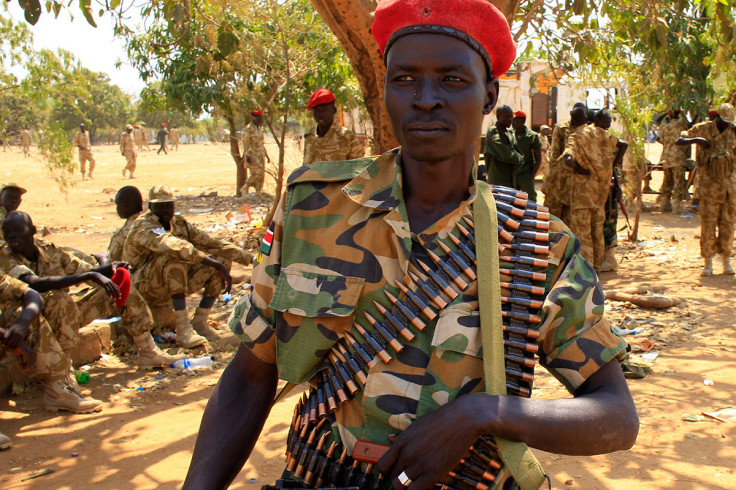Businesses funding the Sudan conflict have been sanctioned by the UK government
Six multi-million-dollar companies in the UK, have had their assets frozen to press the parties into a peace treaty after the government imposed new sanctions.

On 12 July, the UK government imposed new sanctions on businesses which have provided funding and arms to the Sudanese Armed Forces and the Rapid Support Forces in Sudan.
Businesses funding the Sudan conflict have been sanctioned by the UK government
Since April 2023, there has been an ongoing conflict between the Sudanese Armed Forces and the Rapid Support Forces in Sudan. The fighting was fuelled by the dismissal of the then Vice-President Riek Machar and the members of the Nuer group cabinet.
The conflict first escalated in the capital city, Khartoum, and has since spread to dominate densely populated urban areas.
It has been reported that more than 11,000 civilians have been killed, and there have also been reports of abductions, torture and rape. As a result of the conflict, over 2.2 million people have been internally displaced and around 700,000 people have fled to neighbouring countries.
The conflict has also led to more than 25 million people seeking humanitarian aid and assistance. Inside sources have also recalled being witness to children being used as soldiers, and extrajudicial executions.
Yasmin Sooka, the Chair of the Commission on Human Rights in South Sudan, revealed that "extrajudicial executions have been an ongoing violation in South Sudan for several years".
In April 2023, the Sudanese Army and the paramilitary RSF broke a three-day armistice, which was put in place to respect Eid al-Fitr. In May 2023, Haitham Ibrahim, the country's Health Minister, reported that the RSF were occupying at least 12 hospitals in Khartoum.
In Darfur, which had an estimated original population of seven million, there have also been reports of ethnic violence. The ethnic genocide in Darfur, a large region located in the West of Sudan, has been named the first genocide of the 21st century.
The "Darfur Genocide", against the Fur, Masalit and Zaghawa ethnic groups, refers to the current rape and mass slaughter of people in Western Sudan.
International community, African union and neighbouring countries
— Ishag mahdi (@Ishagmahdi16635) July 6, 2023
Safe the remaining human lives in Darfur 🌎 Moore than 15 thousands people have been killed within 2 months by RSF 2003 genocide repeats itself again.
Help with
Food
Shelter
Medical assistance
Telecommunications pic.twitter.com/ckiaidsU7G
The UK and Sudan share embassies in both London and Khartoum. Since the hostilities have shown no signs of winding down, the government have frozen any assets that are held by the Sudanese Army and the RSF in the UK.
The strict measures on companies controlled by the RSF and the Sudanese Army sets out to limit the financial freedom of the armed militias and aims to put pressure on the warring parties to engage in a peace treaty.
The multi-billion-dollar companies, which are associated with the Sudanese Army and the RSF, have provided the militias with a steady influx of weapons and funding sources.
James Cleverly, the Foreign Secretary for the UK, said: "These sanctions are directly targeting those whose actions have destroyed the lives of millions. Both sides have committed multiple ceasefire violations in a war, which is completely unjustified."
The new sanctions also aim to press the parties into allowing additional life-saving humanitarian aid into Sudan. The vital aid and support that has been delivered by the UN and other eligible organisations will not be affected by the financial limitations.
The companies that have been affected by the business sanctions include GSK Advance Company Ltd, Al-Junaid and Tradive General Trading – each of which has been founded by or associated with the RSF.
Tradive General Trading supplies the paramilitary RSF with funds and vehicles that have been retrofitted with machine guns. Al-Junaid is a large RSF conglomerate, which was set up by Mohamed Hamdan Daglo "Hemedti" – a leader of the RSF. Evidence shows that the company has provided at least tens of millions in financial backing to the RSF.
Defensive Industries Systems, Sudan Master Technology and Zadna International Company for Investment Limited will also have their accounts frozen due to their associations with the Sundanese Armed Forces.
Defensive Industries Systems generates a profit of $2 billion per year. It has also been reported that Zadna International Company is one of the top three major earners for the Sudanese Armed Forces.
© Copyright IBTimes 2025. All rights reserved.






















